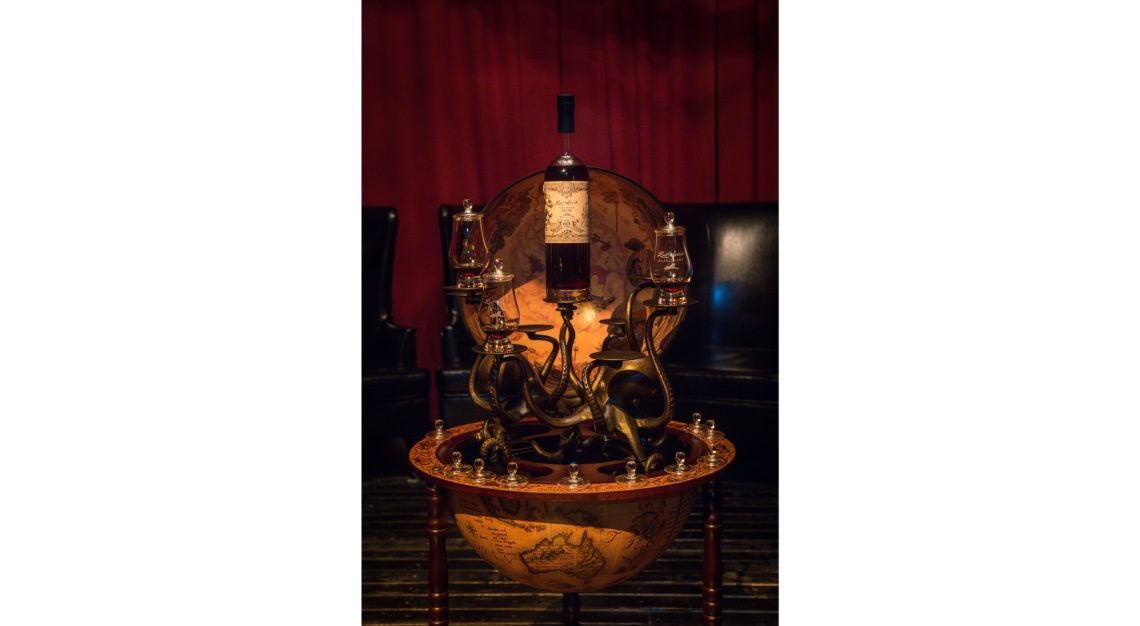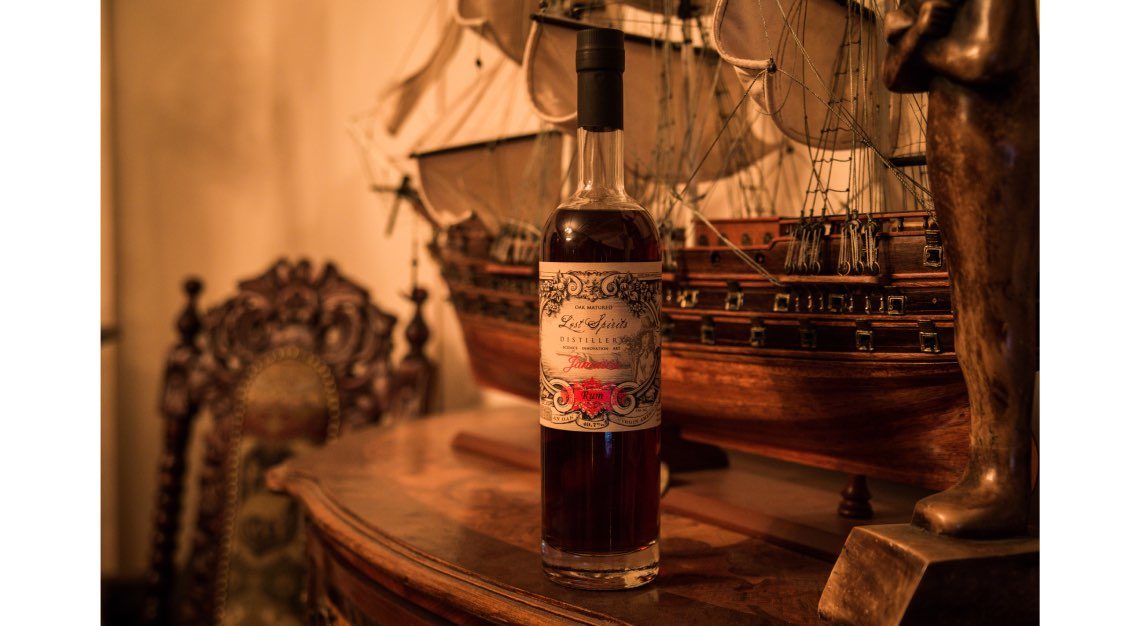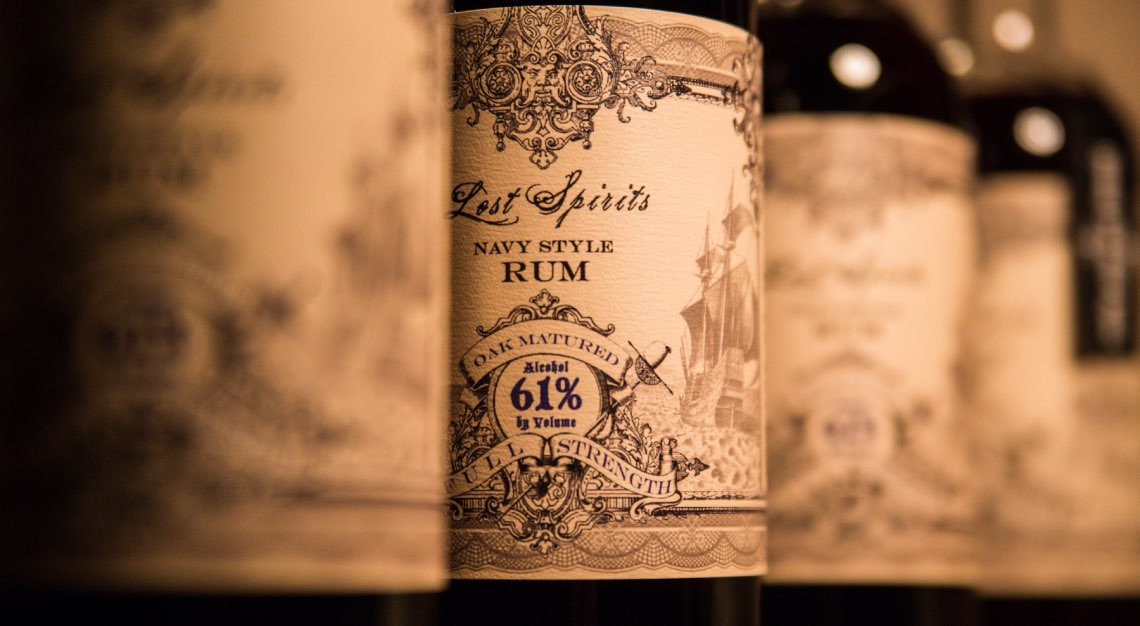Bryan Davis of Lost Spirits Distillery believes in breaking the rules and sheer naivety
Lost Spirits Distillery is housed in a boxy, early 20th-century building on the edge of downtown Los Angeles. Bryan Davis founded the distillery in late 2010 with Joanne Haruta, his girlfriend and partner, and opened it to the public in October 2013. Previously an art teacher and designer for amusement park rides, he modelled the distillery after the likes of Pirates of the Caribbean and Jurassic Park, with the unusual addition of a canal that runs through the property.
Breaking every rule in the book, he’s managed to make six-day-old rum taste as old as 20 years. He runs his spirits through a high-tech reactor of his own invention, and employs extreme light and heat to age them in a flash. His Navy 61 rum took home a Best in Class Award from the International Rum Festival in Miami, and Abomination: The Crying of the Puma, a peated malt whisky, earned itself World Whisky of the Year this year.


You’ve achieved a lot so far. Ageing spirits your way, getting awards and even your own Wikipedia page.
Well, that’s the mission in life, right?
Are you satisfied with what you have done for yourself so far?
It’s been fun, but I don’t think you can ever be satisfied. You’re always trying to get closer to “satisfied”, you know? If you asked me six years ago, I would have been satisfied today with what we have done up to this point. But today, no way. I think it would be horrible to actually be completely satisfied. What would you do now? Go play golf, bird watch or something? What would you do all day?
Do you consider yourself a role model for what could revolutionise the spirits industry?
Ah, I don’t know about the spirits industry. I had a lot of fun giving a lecture to the kids at the University of Southern California not too long ago about different unusual approaches to things. And I think there’s an opportunity to be a role model for a crazy, illogical approach to solving problems. Our lives are so regimented and there’s a specific linear path to everything. I think that being a model is somebody who is able to succeed in an interesting way that’s as non-linear as it gets.
Do you think it’s important to turn life upside down every now and then?
Oh yeah! Once a year, we risk everything and do something crazy. If it fails, it’s all over. But if it succeeds, something great happens and we make a ritual of betting the company on something huge once a year. It makes for good fun.
You’re the kind of guy who likes to push boundaries. Are rules meant to be broken?
If we didn’t break the rules, we’d still be in a cave. Every culture and civilisation has discovered new things, broken rules and discovered ways to defy the laws of physics. If you started with an environment with all the pieces in place, you’re not going to change anything. If you started life with a pile of crap, of course you’re going to change things. These two forces are always in opposition and you just hope you can constructively balance them.
People have a fixed idea of what a distillery should look like and ours is far from it. They always wonder how we got the money to pay for all of it and how we engineered it all. All we did was buy the tools, Google how to do it and build it. By the time their tour of our distillery ends, they’ll walk out thinking: “huh, I wonder if there are really any boundaries at all?” If there’s any one great overarching thing that brings me happiness from this project, it’s watching that happen with people.
https://www.instagram.com/p/BUu1LKAABwU/
Where do you get all the ideas?
I drink a lot (laughs). I think you have to go to a space where you’re not an expert, where you can be naive. Naivety is the most important thing. If you don’t know you can’t do something, then you’re not aware of the rules. For example, we made a really interesting whisky out of peat moss from the Florida Everglades. We imported the peat, made the whisky and then found out that it’s illegal to import soil from Florida. But it was too late, it was done.
What’s the next spirit that you’re working on?
I’m working on a couple other whiskies: a lightly peated one and a coffee grain whisky. Oh, and plum brandy.
Ever heard of slivovitz? It’s an eastern European plum brandy that you’d find in the first chapter of Dracula. That’s when Harker gets into the carriage to go to Dracula’s castle and finds a flask of slivovitz beneath his chair. I figured that it would be fun to create something for Halloween, and have a Dracula-themed tasting room to serve slivovitz. The thing is, it is not easy to make and it tastes like paint thinner. Unlike plum wine, plum brandy is just awful.
Taste is subjective. How do you reconcile the fact that not everyone can be pleased?
You don’t. You just accept that some people are fundamentally flawed. One part of that is your actual taste receptors, but the other part is all brain. Hand someone a glass of wine and he might wonder out loud if it is berries or chocolate. Hand another, and he might say, “ah, this is what wine tastes like.” It’s how you wire your brain. The former will have a good life, and the latter will simply have wine.
In life, have you regretted anything that you’ve done because of your desire to push the limits?
No, but there are things that I regret not having pushed further. I have a biotech project that I really want to work on and I regret not having done it the same time as Lost Spirits. I think you become really keen on your work when you realise how finite life is the older you get. I guess the key is to invent a machine that stops you from ageing, then you’ll have all the time to work on other things.
So fear motivates you.
The fear of running out of time is a motivation to not waste it. Do I need this day off to do something else and will it be productive?
Are you ever afraid of losing the energy for what you’re doing right now?
Yes, and it’s a real thing. It’s very easy to get bored, you know? It’s fun when every time you’re constantly reinventing something, but when it becomes routine, I’m not going to like it. So I intentionally try to prevent that from happening by trying to imagine what nobody has done before.
